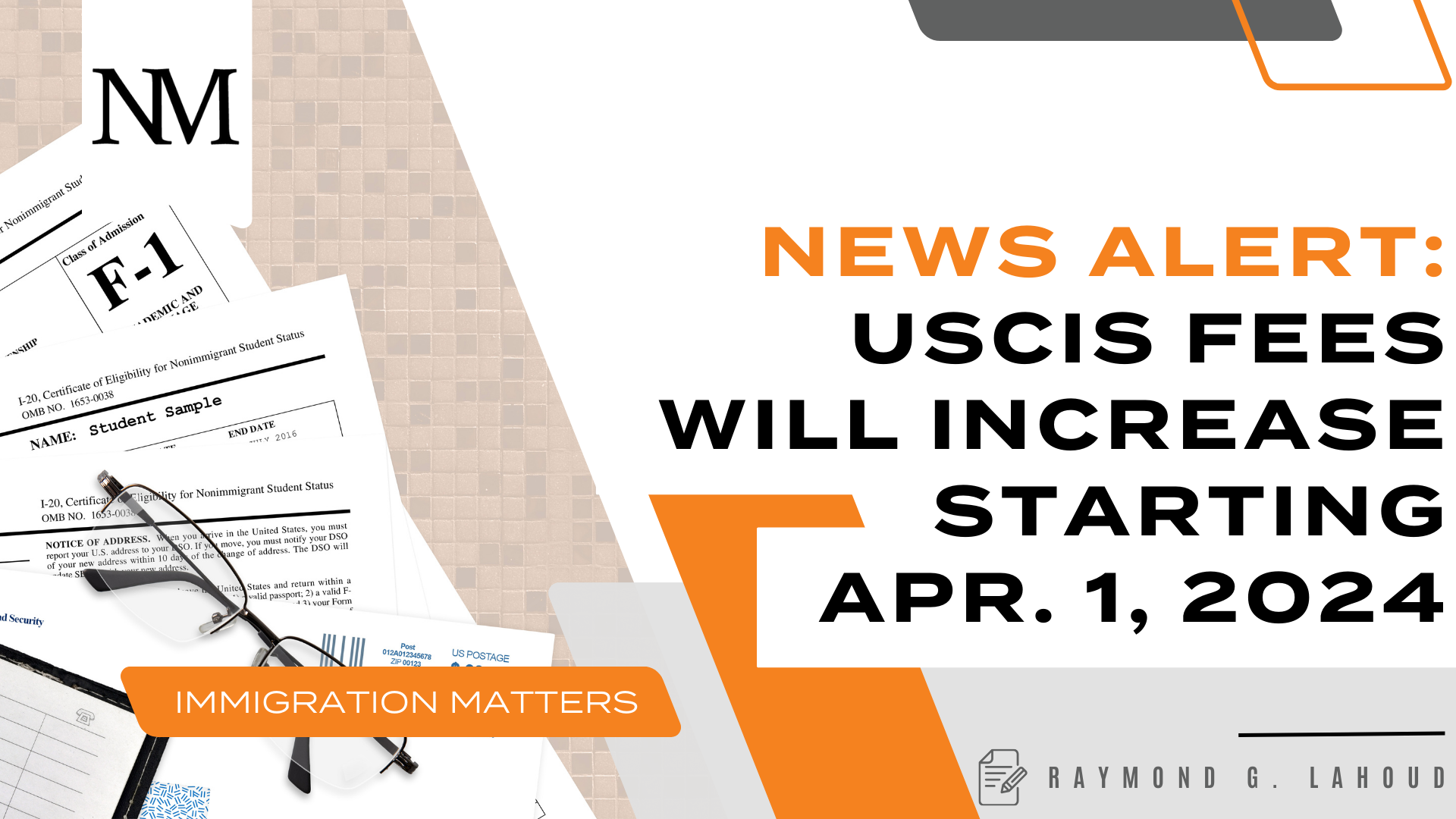News Alert: USCIS Fees Will Increase Starting Apr. 1, 2024
The U.S. Citizenship and Immigration Services (USCIS) and Department of Homeland Security (DHS) released their final rule on Jan. 31, 2024, adjusting the price for certain immigration and naturalization fees. Every two years, the USCIS conducts a fee review. In the most recent biennial review, they determined that the “fees do not recover the full cost of providing adjudication and naturalization services.” In tandem with USCIS, DHS READ MORE READ MORE


